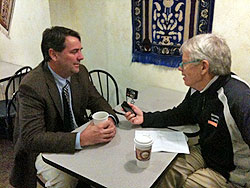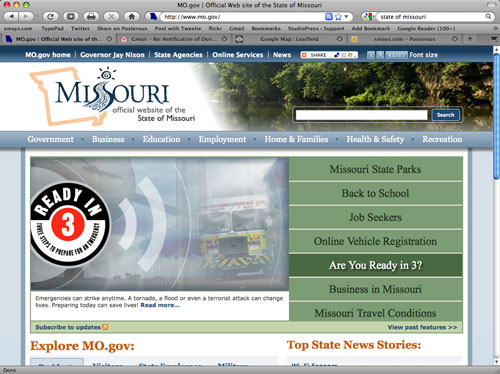http://blog.joeandrieu.com/2007/09/22/leaving-the-information-age/
Leaving the Information Age
I missed the Agrarian Age and the Industrial Age but have been pretty much in the thick of the Information Age, so I was a little startled to learn that it was over. Or nearly so.
David Wienberger pointed to an essay by Joe Andrieu titled “Leaving the Information Age,” written in September of 2007. It makes a compelling case for the the idea that we’re nearing the end of the Information Age:
As cable television and the Internet invaded our homes, we began to find that we could satisfy many of our wants and desires through Information rather than physical goods. It was liberating, intoxicating, and led to one of the most outrageous economic bubbles since the heyday of the Industrial Age triggered the Great Depression.
Similarly, the Information Age is, (surpise!), defined by MORE information. More channels. More telephones. More email. More websites. More advertising. More media.
And in a (perhaps) surprisingly short period, we now find ourselves echoing a new version of the mantra that ended the Industrial Age: “Enough! We don’t need so much Information!”
Mr. Andrieu makes the topic much more interesting than your junior high history teacher.
I missed the Agrarian Age and the Industrial Age but have been pretty much in the thick of the Information Age, so I was a little startled to learn that it was over. Or nearly so.
David Wienberger pointed to an essay by Joe Andrieu titled “Leaving the Information Age,” written in September of 2007. It makes a compelling case for the the idea that we’re nearing the end of the Information Age:
“As cable television and the Internet invaded our homes, we began to find that we could satisfy many of our wants and desires through Information rather than physical goods. It was liberating, intoxicating, and led to one of the most outrageous economic bubbles since the heyday of the Industrial Age triggered the Great Depression.
Similarly, the Information Age is, (surpise!), defined by MORE information. More channels. More telephones. More email. More websites. More advertising. More media.
And in a (perhaps) surprisingly short period, we now find ourselves echoing a new version of the mantra that ended the Industrial Age: “Enough! We don’t need so much Information!”
Mr. Andrieu makes the subject of “ages” much more interesting than your junior high history teacher. Well worth the read.



